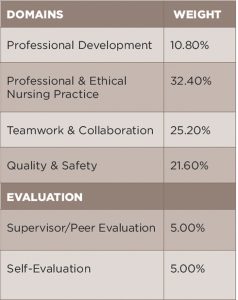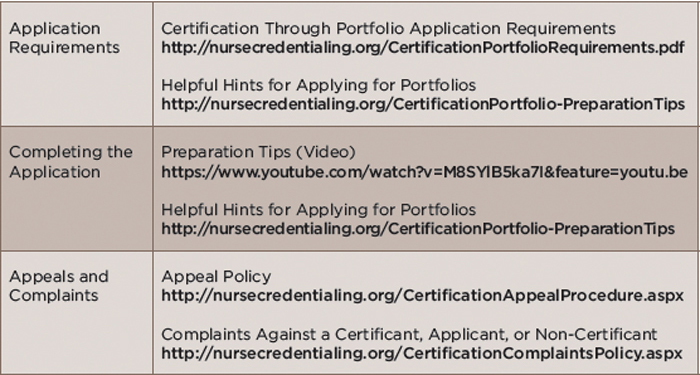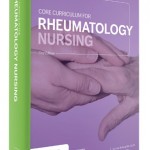
Rawpixel.com/shutterstock.com
Rheumatology nurses have a new option to obtain certification. Instead of taking an exam to demonstrate one’s competencies, rheumatology nurses can provide documentation of their expertise through an online application process, the American Nurses Credentialing Center’s (ANCC) Rheumatology Nursing Certification Through Portfolio. Launched in February 2016, the program was developed by the ANCC in collaboration with the Rheumatology Nurses Society and offers a convenient way for rheumatology nurses to document their expertise and gain certification that is then renewable every five years.
And it can be done without an exam. One advantage of this certification process over other types of certification methods is that it doesn’t require good test-taking skills, says Elizabeth A. Schlenk, PhD, RN, ARHP president and associate professor, University of Pittsburgh, School of Nursing, Pittsburgh, Pa. Another advantage, she says, is that it provides an “opportunity to showcase one’s unique strengths and history of professional development through the portfolio.”
This latter advantage is also its limitation. For nurses to use this credentialing method, they must have experience in their specialty before applying. “It takes time and effort to develop a satisfactory portfolio,” says Dr. Schlenk.
What is similar about this method of certification compared with other methods is its rigor. “Certification Through Portfolio requires rigor equivalent to that of examinations to meet accrediting bodies’ criteria to determine proficiency through a peer review process informed by nurse experts,” explains Lourdes B. Careaga, BSN, RN, senior healthcare product specialist, ANCC, Silver Spring, MD.
So what is Rheumatology Nursing Certification Through Portfolio, and how do nurses use it?
Certification Through Portfolio
The ANCC Rheumatology Nursing Certification Through Portfolio is the newest ANCC portfolio credential offered by the ANCC through its patented method for credentialing specialty nurses.1 It consists of four domains that capture the specialized knowledge, understanding and application of a professional nurse’s practice and theory, as well as performance evaluation requirements (see Table 1).
Ms. Careaga says the credential based on evaluation of these domains (and evaluation requirements) validates the competency of the rheumatology nurse. “The credential is based not only on meeting the eligibility requirements, but more importantly on the evidence submitted by the portfolio candidate that successfully meets the evaluation requirements of the rheumatology nursing specialty as described under each of the four domains,” she says.
Because nurses have to show competency in all domains, Dr. Schlenk emphasizes that the nurse applicant must be actively engaged in rheumatology to develop a satisfactory portfolio. (See “Online Courses to Expand Knowledge & Skills,” above.)
How Does It Work?
Nurses who apply for Certification Through Portfolio submit an online portfolio that documents evidence of their specialized skills and knowledge, as well as understanding and application, of professional nursing practice. Ms. Careaga emphasizes that the application is completely electronic.
Applicants can submit their applications from their home or office. “Portfolios are completed through an ANCC online application system that is easily accessible, and candidates can work on their portfolios at whatever time is most convenient for them,” she says. Table 2 (left) provides resources on the application process.
The credential is awarded to candidates who successfully pass the portfolio evaluation process, and once awarded, the certification remains valid for five years, according to Ms. Careaga, who adds that certification renewal through portfolio follows the standard ANCC certification renewal requirements and requires no further portfolio submission.
Take-Home Message
“Rheumatology nurses will find the Certification Through Portfolio process an enriching experience,” says Ms. Careaga, who emphasizes that the process allows for self-reflection and the ability of the nurse to share her or his “unique knowledge, skills and experience in their professional practice within the current scopes and standards of the specialty.”
Dr. Schlenk says the portfolio process is a way for nurses to demonstrate competency in their specialty, and show commitment to personal and professional growth and a desire to improve the lives of patients. “The credential may be used in the clinical setting as part of a clinical ladder for promotion,” she adds, saying it is respected in academic and nursing communities.
Mary Beth Nierengarten is a freelance medical journalist based in Minneapolis.
Online Courses to Expand Knowledge & Skills
For rheumatology nurses interested in expanding their knowledge and practice skills, the ACR offers the Advanced Rheumatology Course online through its division, the Association of Rheumatology Health Professionals (ARHP). The learning objectives of the 19-module course include assessing, managing and evaluating pediatric and adult patients with rheumatic diseases; describing the scope of practice of nurse practitioners and physician assistants in the management of rheumatic diseases; and describing the impact of rheumatic diseases on individuals and society.
Coming next month to the ARHP rheumatology education portfolio is the debut of Rheumatology eBytes. Osteoarthritis and rheumatoid arthritis are the first bite-sized intermediate learning level activities to launch on the new ACR Learning Management System.
Click here for more information on these educational activities.
Reference
- American Nurses Credentialing Center. ANCC and RNS Announce Board Certification for Rheumatology Nursing. Press Release. 2016 Feb 29.




